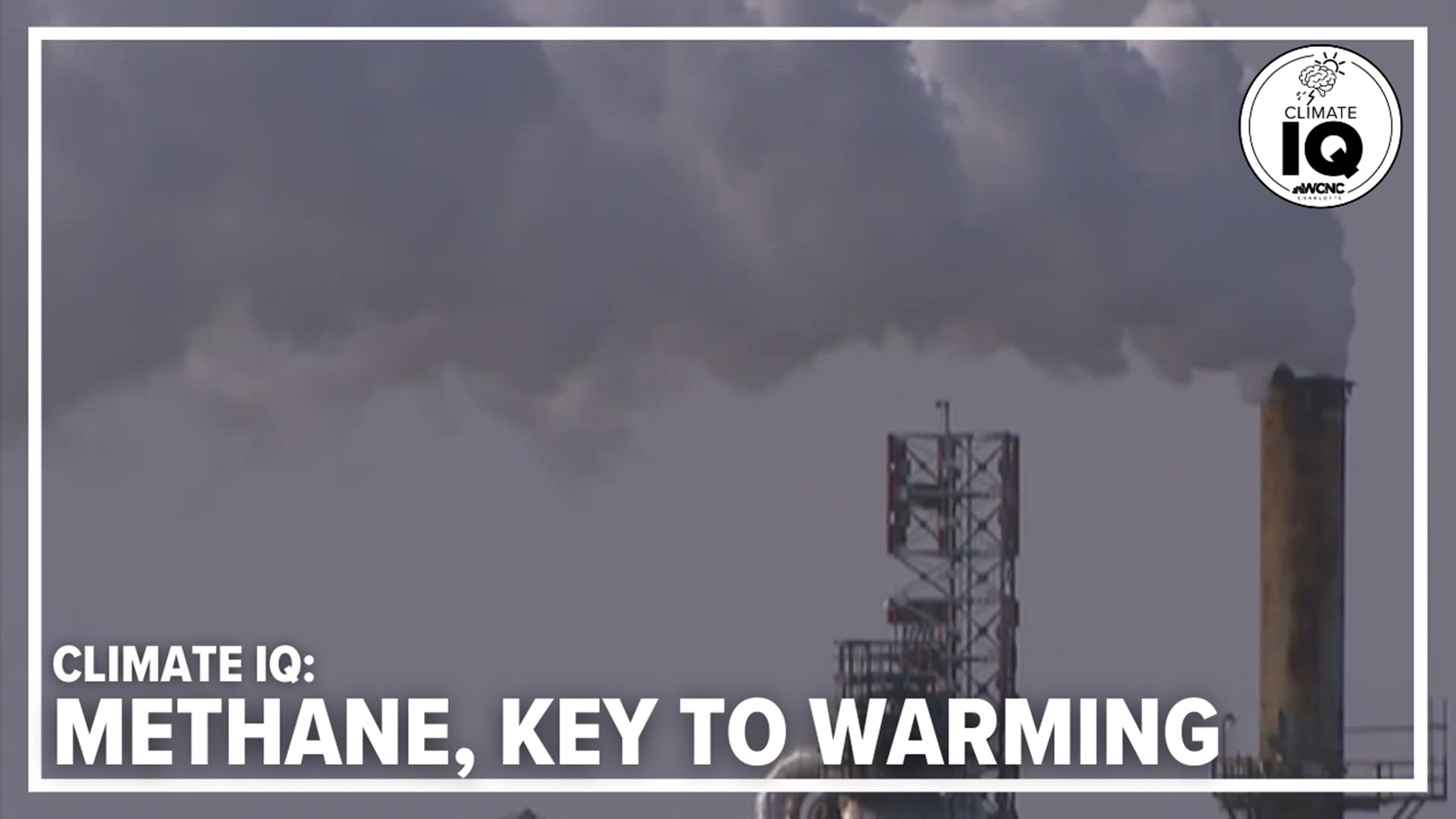CHARLOTTE, N.C. — When climate change is discussed, oftentimes the focus is on carbon dioxide. There is, however, another potent greenhouse gas that accounts for a third of the warming across the globe: methane.
Methane may not be the largest greenhouse gas in our atmosphere but it has over 80 times the warming power of carbon dioxide over a 20-year period. It also breaks down quicker than CO₂ .
This has led scientists to conclude that rapidly cutting methane emissions would significantly slow warming.
"We're getting better and better information about methane emissions," Drew Shindell, a professor at Duke University and a member of the Climate and Clean Air Coalition, explained. "And we're realizing that in many cases, we've underestimated how much is coming out."

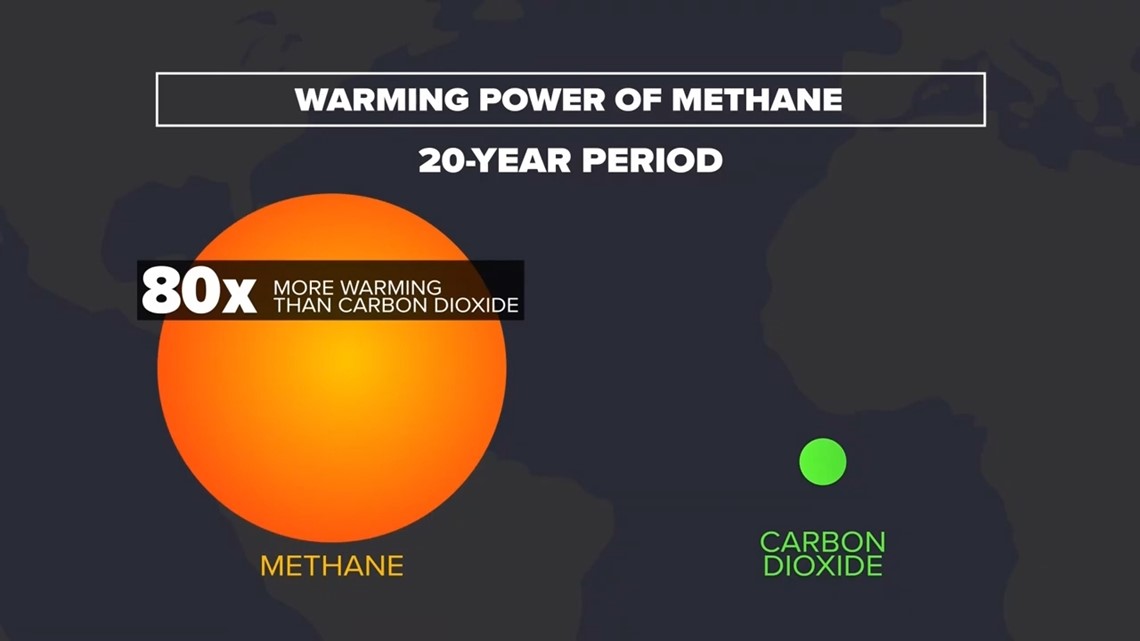
Shindell, who holds a doctorate in physics, says humanity has waited too long to address carbon dioxide and needs to tackle all gasses now – especially methane.
Methane was previously measured but, by comparison, it was measured poorly. Data shows we were dramatically underestimating human-caused methane emissions.
One argument questions reduction solutions considering methane can break down on its own after a few decades. But Dr. Karen Florini, Climate Central’s vice president for programs, said decreasing methane now gives us a more powerful response in the near term.
She explained methane actually offers us the best short-term opportunity to reduce the pace of climate change.
"When we reduce the pace of climate change, we give ourselves more time to adapt to the bad storms and the droughts and the floods and all the other problems climate change brings with it," Florini explained.

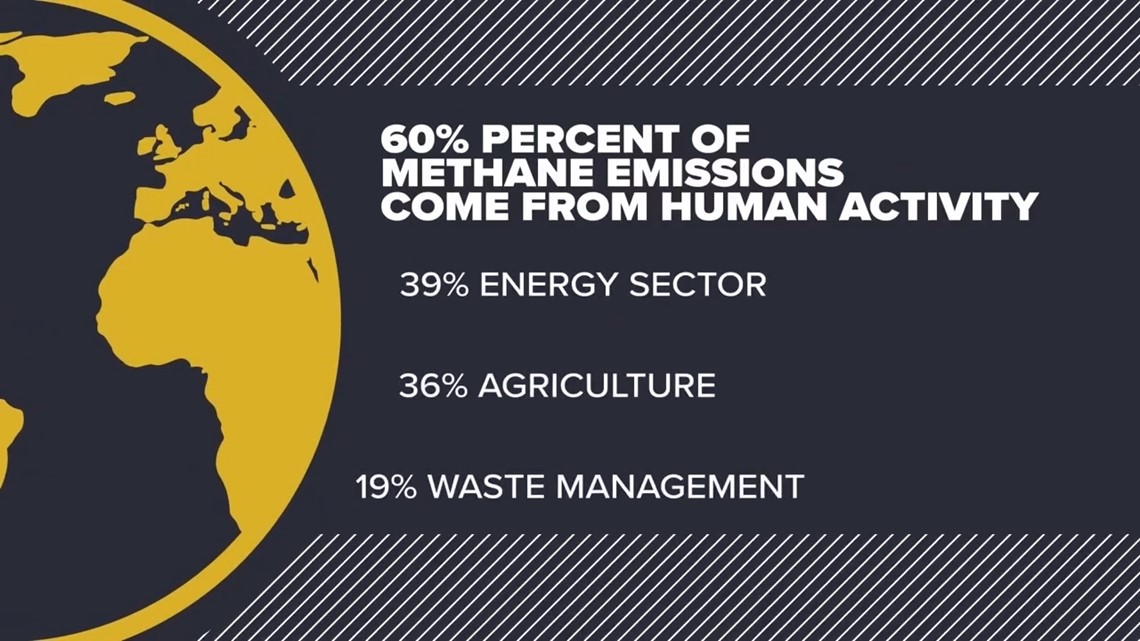
About 60% of methane emissions come from human activities such as agriculture, the energy sector, and waste management.
The most cost-effective way to reduce methane is to capture and recycle it; putting it back into the natural gas system or generating electricity on the spot.

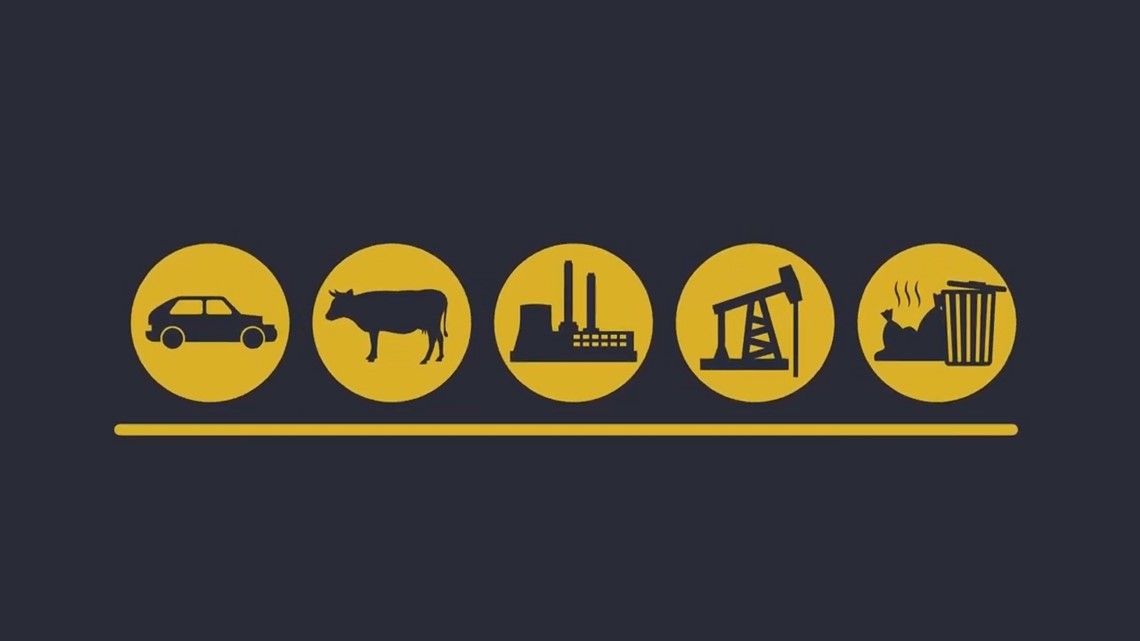
Shindell said capturing methane from landfills and manure ponds in the agricultural sector could help. He said recycling practices could also apply to many fossil fuel systems, including the reduction of leaks in the oil-and-gas sector.
Easy solutions also include changing what cows are fed. Composting and recycling are also easy ways to reduce waste.

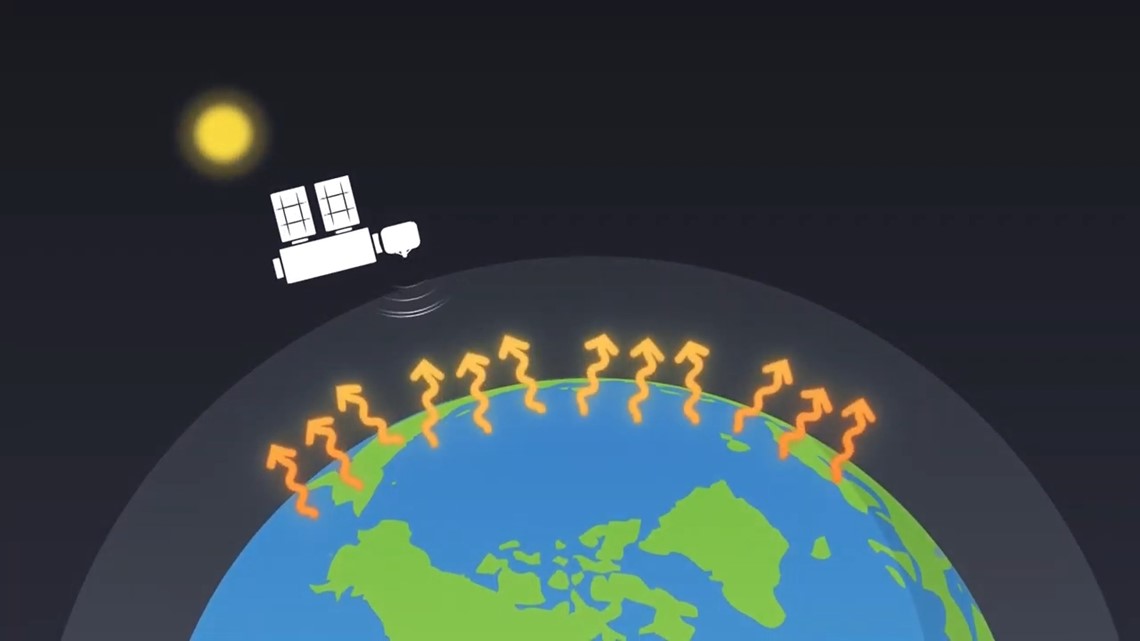
To help identity methane being emitted into the atmosphere, new satellites and remote-sensing tools are being deployed.
Methane gas has no odor and no color meaning it was previously impossible to detect without such tools.

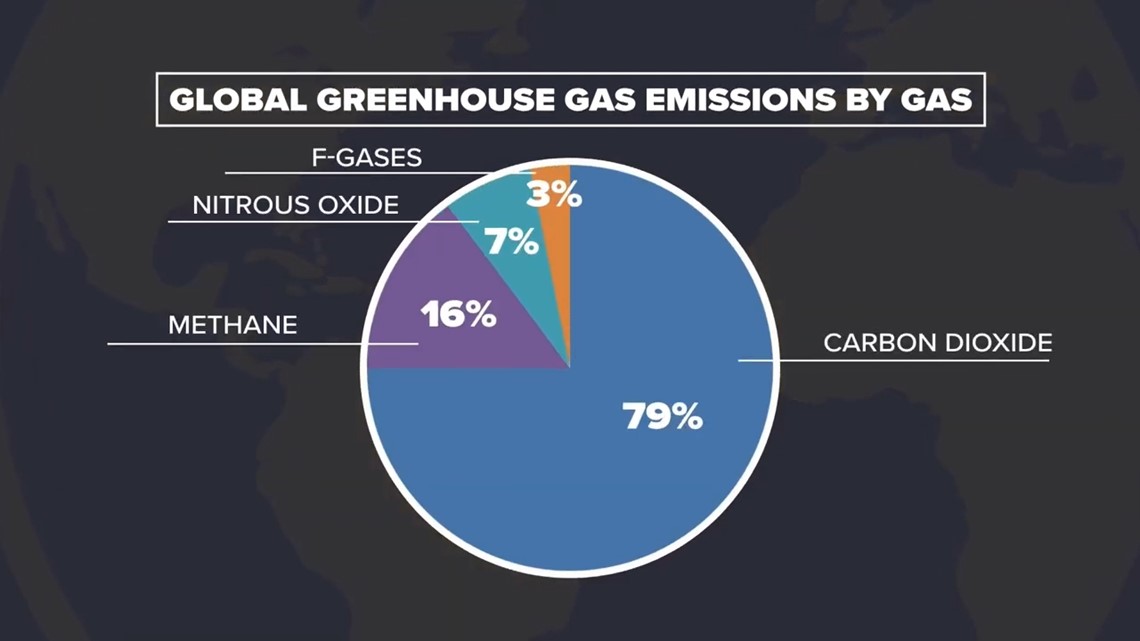
Shindell said there is still misinformation about climate change, human impact, or the reduction of fossil fuels.
"It's all about redirecting the argument to say that we really have to keep using fossil fuels, because everything else is either unreliable or too expensive, which is again, a form of misdirection, because that's not the case."
Methane is also a precursor to ground-level ozone. By reducing this type of gas, you improve public health and reduce asthma and heart attacks.
Both Shindell and Florini said this is one of many reasons the U.S. Environmental Protection Agency is working on new regulations.
"We're all living on this planet, and all being already affected by climate change," Florini urged. "A lot of people may not realize the extent to which they're being affected, but they are everyone all over the world is already living with the consequences of climate change."

